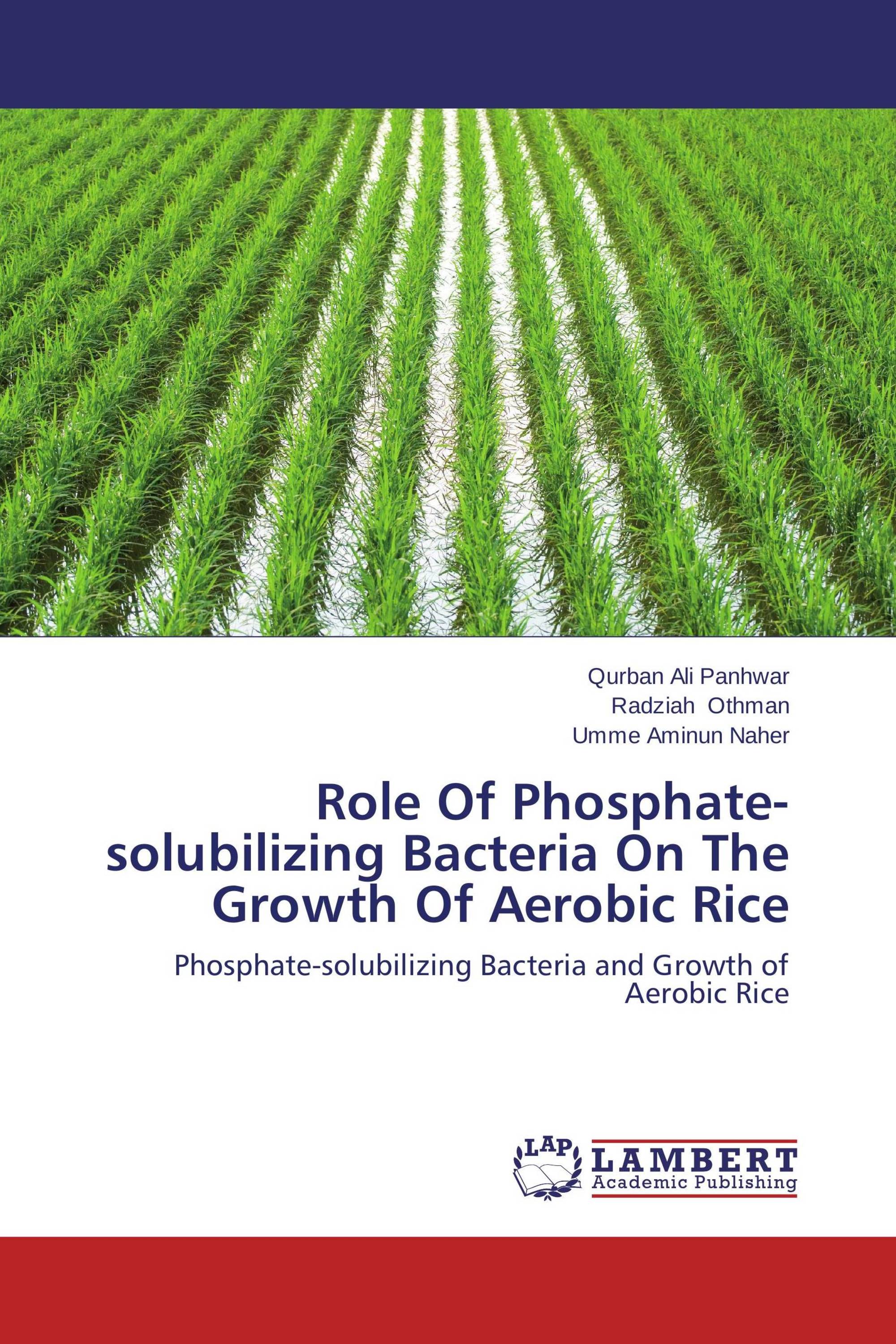Role Of Phosphate-solubilizing Bacteria On The Growth Of Aerobic Rice
Phosphate-solubilizing Bacteria and Growth of Aerobic Rice
€ 71,90
Rice (Oryza sativa L.) serves as a staple food for more than three billion people worldwide. Aerobic rice requires the same amount of nutrients as flooded rice, but in the former, there is a problem of phosphorus (P) availability, due to its fixation with other elements. In the soil, P becomes unavailable due to fixation and immobilization and about 70-90% phosphatic fertilizers become fixed in soil. Microorganisms play an important role in agriculture by supplying nutrients to the plants and reduce the demand of chemical fertilizers. Microorganisms, especially phosphate-solubilizing bacteria (PSB) have the ability to solubilize, insoluble P in soil and reduce inputs of chemical fertilizers. Besides PSB are also capable of producing indole-3-acetic acid, a phytohormone known to be involved in root initiation, cell division and cell enlargement. Furthermore, these strains have ability to stimulate the growth of roots and shoots and increased 32P-labeled phosphate uptake in the plants.
Book Details: |
|
|
ISBN-13: |
978-3-659-62021-8 |
|
ISBN-10: |
3659620211 |
|
EAN: |
9783659620218 |
|
Book language: |
English |
|
By (author) : |
Qurban Ali Panhwar |
|
Number of pages: |
200 |
|
Published on: |
2014-11-03 |
|
Category: |
Agriculture, horticulture, forestry, fishery, nutrition |
